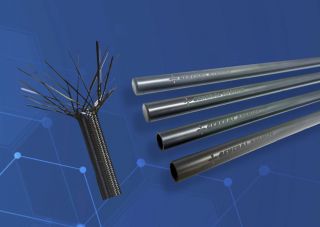U.K., Japan to research remote D&D, fusion systems

The LongOps project will develop innovative robotic technologies. Photo: UKAEA
Britain and Japan have signed a research and technology deployment collaboration to help automate nuclear decommissioning and aspects of fusion energy production. According to the U.K. government, which announced the deal on January 20, the £12 million (about $16.5 million) U.K.–Japanese robotics project, called LongOps, will support the delivery of faster and safer decommissioning at the Fukushima Daiichi reactors in Japan and at Sellafield in the United Kingdom, using long-reach robotic arms.
The four-year collaboration on new robotics and automation techniques will also be applied to fusion energy research in the two countries.
Funded equally by U.K. Research and Innovation, the U.K.’s Nuclear Decommissioning Authority, and Japan’s Tokyo Electric Power Company, the LongOps project will be led by the U.K. Atomic Energy Authority’s (UKAEA) Remote Applications in Challenging Environments (RACE) facility.


